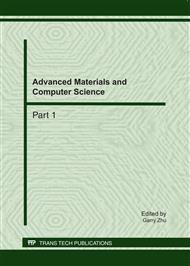p.1565
p.1569
p.1573
p.1578
p.1583
p.1587
p.1591
p.1595
p.1599
Comparison Study on Two Energy Control Strategies of Plug-In Hybrid Electric Vehicle
Abstract:
It is of great importance to manage the energy split of plug-in hybrid electric vehicle during the driving process.In this paper, principle of energy control in plug-in hybrid electric vehicle was first presented. And then, two energy control strategies, including fuel control strategy and engine efficiency control strategy, were analyzed, respectively. Finally, comparision simulation experiments were carried on electric vehicle platform ADVISOR software. Simulation results show that, using fuel control strategy can get a better economy performance but worse engine efficiency; while using engine efficiency control strategy can get a better engine efficiency but higher fuel consumption.
Info:
Periodical:
Pages:
1583-1586
Citation:
Online since:
April 2011
Authors:
Price:
Сopyright:
© 2011 Trans Tech Publications Ltd. All Rights Reserved
Share:
Citation:


